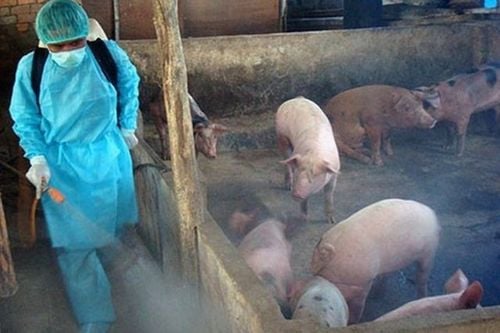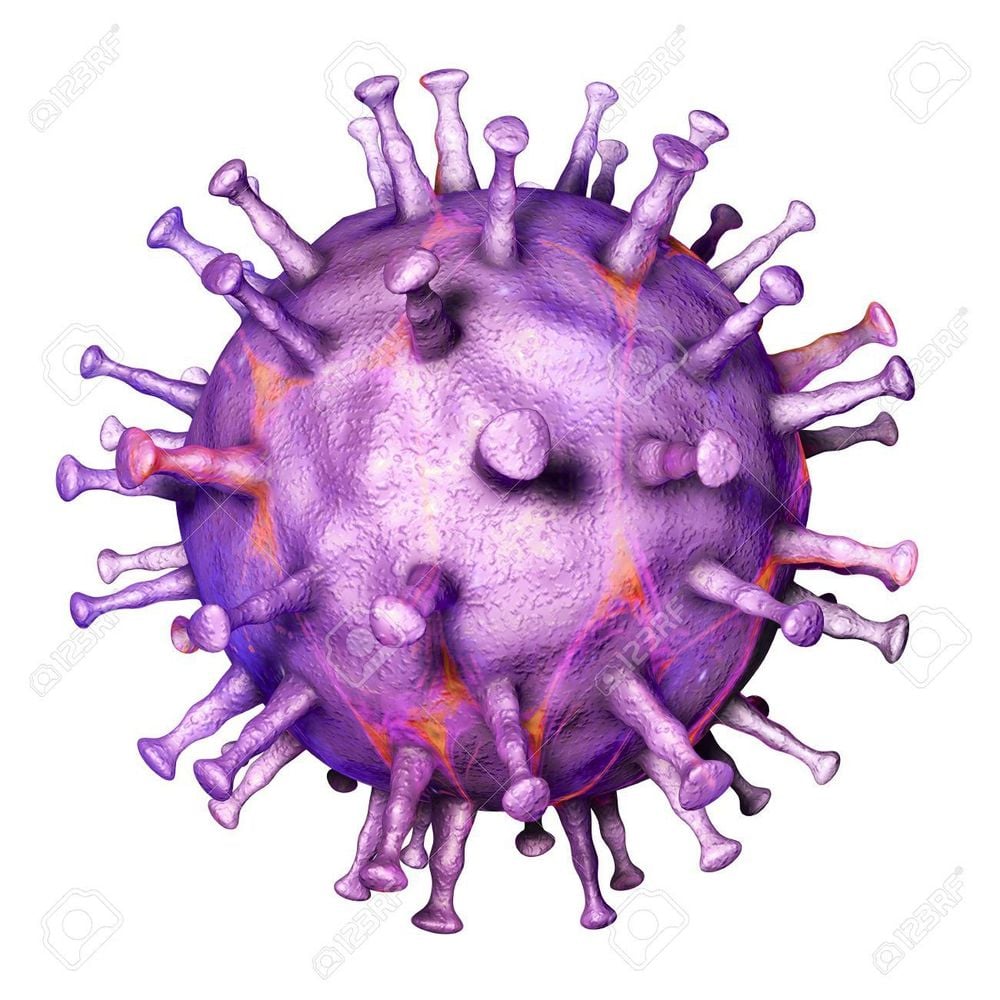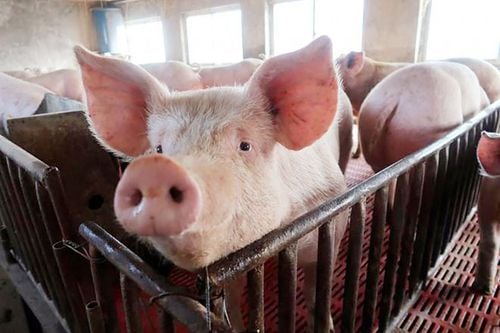This is an automatically translated article.
The article was professionally consulted by Master, Doctor Nguyen Thi Nhat - Infectious Disease Specialist - Department of Medical Examination & Internal Medicine - Vinmec Hai Phong International General HospitalAfrican swine fever in Vietnam is breaking out and has spread to 34 provinces and cities. In Hanoi, 24 hours a day, pigs have been infected and the number of pigs destroyed is up to 1.5 million heads. , causing great damage to the livestock industry. The outbreak caused a lot of confusion for consumers, so will the disease affect human health?
1. Characteristics of African swine fever
1.1 What is African swine fever?
The disease first originated in Africa and is an infectious disease caused by a virus. The disease can spread rapidly and occurs in all pig species, all ages of pigs and mortality is almost 100% with infected pigs. The virus that causes swine fever is present in the blood, organs, and secretions of pigs infected with African cholera.Swine fever virus has high resistance, can withstand low temperatures, in raw pork or at low temperatures the virus can survive for 3-6 months, the virus dies at 70 degrees Celsius. Because the resistance of this virus is high, it has the ability to spread on a large scale and prolong swine cholera.
1.2. Path of disease transmission
The disease is transmitted by respiratory and gastrointestinal tract, Through direct or indirect contact with infected objects such as: infected pigs, stables, means of transport, tools, utensils, clothing. infected with the virus and food containing infected pork.The disease is not contagious to humans, but humans are a carrier of the disease.
1.3. Symptoms of African Swine Fever
African swine fever has an incubation period of 3 to 15 days, with an acute incubation period of 3 to 4 days. Symptoms in sick pigs vary from person to person.Over-acute form
Pigs die quickly, often without clinical symptoms or lying down with high fever before death. Acute form:
Pigs have a high fever of about 40.5 - 42 degrees Celsius. Pigs do not eat for the first 2-3 days, are lazy to exercise, lie in piles, like to lie near water. Pigs move abnormally, some white areas turn red, especially areas such as: ears, tail, legs, skin under the chest and abdomen may be blue-violet. Then, about 1-2 days before death, the pig showed neurological symptoms, unsteady walking, shortness of breath, blood in the nose, eye inflammation, vomiting, diarrhea, sometimes bloody or bloody. constipation body. Pigs die within 6-13 days or may last up to 20 days. Pregnant pigs can cause miscarriage, high mortality rate of almost 100%. Pigs who recover from the disease or become asymptomatically infected with the virus will carry the virus for life and be a source of infection. Subacute form :
Pigs with mild fever, or no fever, loss of appetite, weight loss, cough and difficulty breathing. Difficulty walking, arthritis, pregnant pigs can miscarry. Pigs die after about 15-45 days, the mortality rate in this form is about 30-70%.
1.4. How to prevent African swine fever

Regularly cleaning and disinfecting livestock facilities, means of transport, livestock equipment, wholesale markets, slaughtering pigs and pig waste products with lime powder or chemicals. Personal hygiene of people involved in animal husbandry. Detect and isolate sick and suspected pigs. Kill disease sources such as flies and mosquitoes to avoid spreading the disease to the outside. Do not buy or sell pork of unknown origin, do not use leftovers or undercooked food from pigs.
2. Effects of African swine fever on human health

Diseases such as blue ear, flu, typhoid... are dangerous to humans, causing cause digestive disorders when people eat blood soup or sick pork has not been cooked.
Especially when suffering from blue ear disease, streptococcus bacteria residing in the mouth and nose of pigs will develop, if people with open wounds come into contact with pigs, the bacteria will invade and cause disease. When infected, the patient has a high fever, headache, nausea, bleeding in some places on the body, in addition, there are some cases where symptoms of gastrointestinal toxicity, more severe may be meningitis .
African swine fever is spreading rapidly and has not shown any signs of abating. The disease has no specific prevention measures, so everyone needs to actively prevent the epidemic with biological measures. The disease does not directly affect human health, but can cause or pass through other diseases. Should actively eat cooked and drink boiling to ensure hygiene, do not use food of unclear origin to ensure health.
Please dial HOTLINE for more information or register for an appointment HERE. Download MyVinmec app to make appointments faster and to manage your bookings easily.
Articles compiled from sources: ChicucthuyHCM.org.vn, VNexpress.net, Nongnghiep.vn













